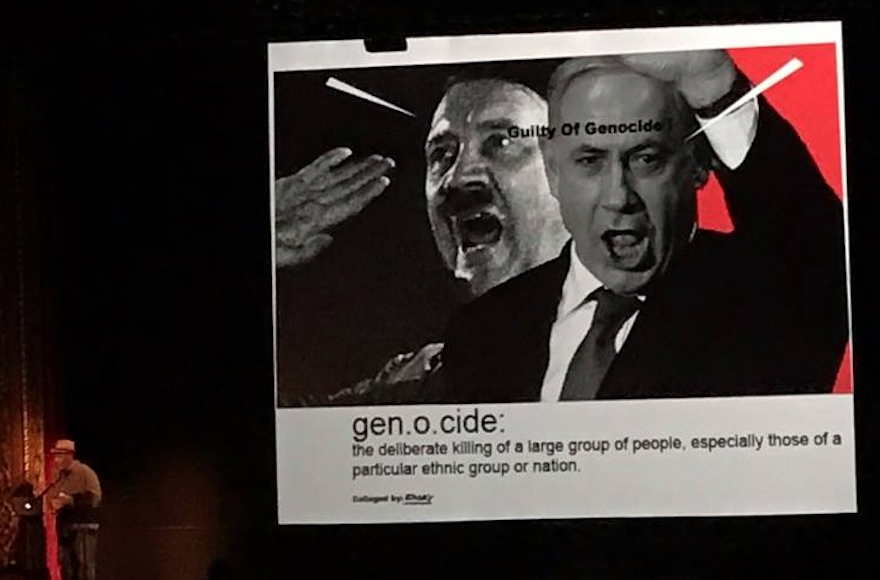
On Monday 21st January, over 300 students gathered in Logan Hall for what promised to be an historic vote which could transform the lives of the Jewish student contingent at UCL for years to come. It was a motion encouraging the Students’ Union to adopt the IHRA definition of antisemitism and in turn improve the Union’s policies on antisemitism overall. After a lengthy, heated debate during which convincing arguments were made on both sides, the motion was eventually defeated, with 212 students voting against, 78 students voting in favour, and 9 abstentions. This begs the question: were Jewish students simply asking too much?
To give readers some useful context, the IHRA definition of antisemitism was adopted by all 31 member states of the International Holocaust Remembrance Alliance in 2016. It includes a short explanation of what antisemitism is in its simplest form and goes on to list anti-Semitic behaviour which “could, taking into account the overall context, include, but are not limited to” 11 examples.
If you read them, it is fair to say that the majority of the examples draw no objections from anyone, irrespective of their position on Israel; however, it appears that example 7: ‘Denying the Jewish people their right to self-determination, e.g., by claiming that the existence of a State of Israel is a racist endeavour’, and example 10: ‘Drawing comparisons of contemporary Israeli policy to that of the Nazis’, stand out as the main sticking points.

One reason why this definition has been denounced so widely by anti-Israel groups, including UCL’s very own Friends of Palestine Society who gathered members in their hundreds to the general assembly, is that they believe it infringes on their freedom to lawfully criticise the State of Israel, the world’s only Jewish state. They affirm that this definition will render any criticism of the State of Israel inherently antisemitic and will therefore afford Israel immunity from any negative comments. However, this opinion is misguided at best, as there is a clause in the definition stating that “criticism of Israel similar to that levelled against any other country cannot be regarded as antisemitic”. Additionally, they would do well to note that the examples “could, taking into account the overall context,” be antisemitic. Not are; could be.
Context is crucial, and anti-Israel activists are concerned that according to the IHRA definition, context will be taken out of the equation when it comes to debate on Israel, which is simply not the case. The examples themselves do not tell the whole story; one must also read the surrounding text in order to obtain a thorough understanding of this definition. For Israel’s most fervent opponents, the implementation of this definition would no doubt prompt them to moderate their rhetoric on the state, whose existence they often label as a racist endeavour and whose policies they compare to those of Nazi Germany. They consider it their divine right to ascribe these labels to the Jewish State, so is it legitimate that such statements be considered prejudiced against Jews?
Breaking Down IHRA’s Guidelines
Let us start with example 7: ‘Denying the Jewish people their right to self-determination, e.g., by claiming that the existence of a State of Israel is a racist endeavour’. They could have established one anywhere, but the Zionist movement sought to create a state in their ancestral homeland; a state in which Jews could feel safe and flourish once again as an independent people, exactly as they had done in the biblical kingdom of Israel before they were exiled. Even if one is opposed to the idea of religious states, one cannot fail to notice that the very existence of 49 Muslim states and 15 Christian states (a sizeable portion of which are less tolerant and diverse than Israel) is scarcely scrutinised, so why can’t one tiny Jewish state the size of Wales exist in peace? When seen in this light, to call the existence of a Jewish state (within or external to the Levant) a racist endeavour must therefore be seen as discriminatory against Jews.
To call the existence of a Jewish State racist is one thing, but comparing Israel, the world’s only Jewish state which was specifically designed as a safe haven for Jews fleeing from persecution, to Nazi Germany, a genocidal dictatorial regime which sought to exterminate the Jews during the Second World War, defies all logical reasoning. Undoubtedly, drawing such a comparison demonstrates a sickening degree of moral depravity, and so example 10 must therefore be considered gravely antisemitic. There is no denying Israel and the Palestinians are locked in a conflict which often produces devastating results, but Israel is not systematically wiping the Palestinians out – otherwise their population would not have grown by 800% since the establishment of the State of Israel in 1948, according to the Palestinians’ very own Ma’an News Agency.

In spite of much fervent opposition to the IHRA definition on the part of pro-Palestinian individuals and groups, the definition has in fact been adopted by over 130 UK councils, the Metropolitan Police, the Crown Prosecution Service and even several political parties, most notably the Conservative Party and the Labour Party. On a university level, our friends at Kings College have adopted it too – so would UCL have done well to follow suit?
As a Jewish student at UCL who attended the general assembly on Monday, I believe that the adoption of the IHRA definition of antisemitism would have been a great step forward in alleviating the concerns of many Jewish students who fear for their safety on campus. Such concerns have only been ignited in the last couple of years by the invitations to campus extended to unapologetic antisemites and supporters of terrorism against Jews, in breach of the Union’s own regulations on free speech. These include Miko Peled, who wrote on Twitter that “Jews have [sic] reputation 4 [sic] being sleazy thieves” and called for discussions about whether the Holocaust really happened. Another speaker whose poisonous rhetoric has permeated UCL’s walls is Dr Azzam Tamimi, who is an open supporter of Hamas – the Palestinian Sunni-Islamist fundamentalist organisation widely regarded as a terrorist organisation – and has heavily praised their suicide bombing tactics against innocent Israeli civilians.
The popularity of the annual hate-fest ‘Israel Apartheid Week’ is also a thorn in the side of many Jewish students who already feel that a blatant double standard is applied to Israel (a breach of example 8 of the IHRA definition), when the crimes of other countries go unnoticed. Most recently, Malaysia announced that it would be refusing entry to Israeli athletes who wish to compete in the 2019 World Para Swimming Championships in July.
Other nations behave in an undesirable manner, but no other athletes are being banned on the basis of their nationality alone, so why only Israelis? Which prompts many to ask: is it because Israel is a Jewish state?
Through the university’s lack of a proper definition of antisemitism, certain members of staff, students, sabbatical officers and external speakers alike have been given a free pass to promote their hatred of Jews and the Jewish state on campus, while Jewish students have been powerless to stem the tide of antisemitic abuse which has been hurled their way. Their struggle has been the subject of numerous articles in outlets such as the Guardian, the Times, BBC News and the Jewish Chronicle.
The proposition of a motion to implement the IHRA definition as Students’ Union policy was therefore seen as a welcome development for many Jewish students. However, their hopes were dashed by the votes of 212 students, among them heavily biased pro-Palestinians (encouraged to attend by the Friends of Palestine Society), and the Union’s antisemitism regulations are still unreformed.
From my viewpoint and that of many Jewish students at UCL, the cheering which accompanied the failure of this motion was sickening, and only stands to show that all those who voted against the motion are more interested in spreading hatred than eradicating it.
Originally published in Pi media.
Contributed by co-President of CAMERA-supported society University College London Friends of Israel and CAMERA Fellow Joel Greenbaum.

